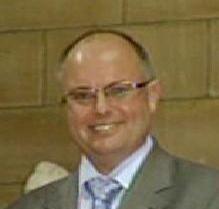
Project Summary:
Brain injury from stroke is one of the leading causes of long term disability in Australia. Strategies to protect the integrity and function of the brain have been a major focus of stroke research over the past two decades, however, despite numerous pharmacotherapeutic agents showing promise in animal models of brain ischaemia, none have translated into an effective therapy in human stroke. The likely reasons for failure of translation are numerous, however, among these are concerns about limited potency related to narrow therapeutic targeting of single pathways within the complex process of the biochemical ischaemic cascade.
Hypothermia is one of the most potent neuroprotectants in experimental stroke models and has been proven beneficial in human global brain ischaemic following cardiac arrest. Cooling results in attenuation of multiple potentially deleterious pathways in the ischaemic brain and can be considered a “multimodal” neuroprotectant.
The Stroke Research Program within the Centre for Brain & Mental Health Research, Hunter Medical Research Institute (HMRI) has conducted a successful pilot feasibility study in acute stroke patients using the technique of intravascular cooling. Intravascular cooling catheters are placed in the inferior vena cava producing cooling of the circulating blood and thereby brain cooling via a heat transfer mechanism. The technique can be deployed in the awake patient and in the acute stroke unit setting.
The group now plan a phase 2 randomised trial of intravascular cooling assessing the safety of the technique and the potential for the technique to reduce the amount of brain tissue progressing to infarction using advanced CT imaging techniques. The researchers anticipate completion of this phase of the work in two years and if positive, proceeding to larger scale trials examining clinical benefit of hypothermic therapy.


 The Brain Foundation is the largest, independent funder of brain and spinal injury research in Australia. We believe research is the pathway to recovery.
The Brain Foundation is the largest, independent funder of brain and spinal injury research in Australia. We believe research is the pathway to recovery.